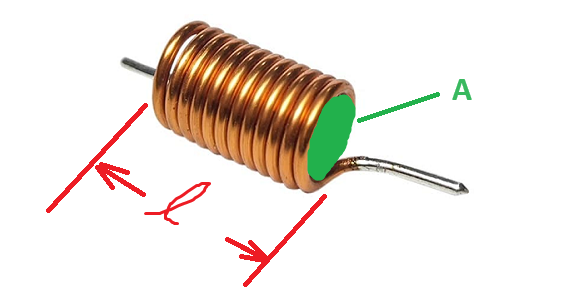I know that inductance can be calculated with the formula $$ L = \frac{µN^2A}{l} $$ where \$L\$ is inductance, \$µ\$ is magnetic permeability(1 in air), \$A\$ is the area of the coil(cylinder flat face), \$N\$ is the number of turns and \$l\$ is the length of the inductor.
However, regarding length, is it utilised as the literal length from top to bottom of the inductor(e.g. the inductor is 2cm long), or is it used as the total unwound length of the inductor(e.g. 10cm of wire was used to make this inductor)?

